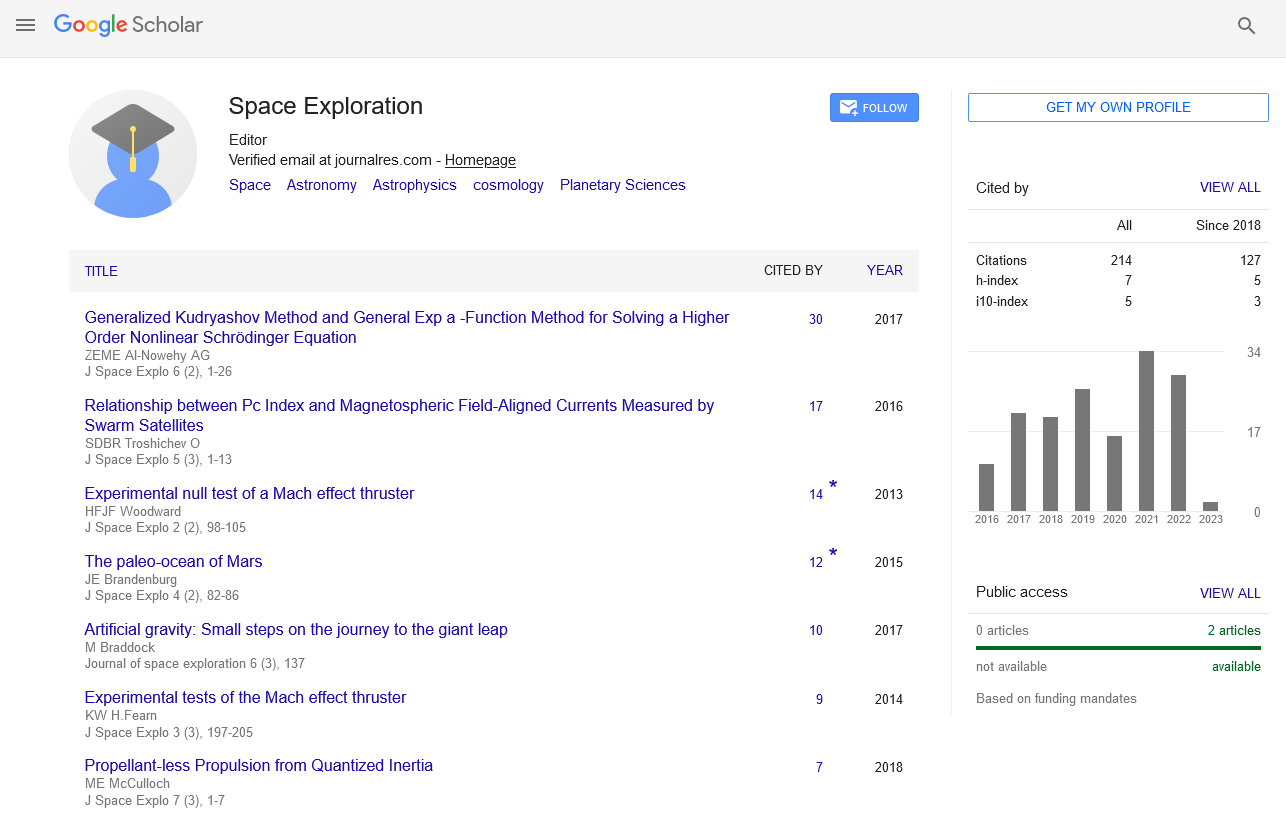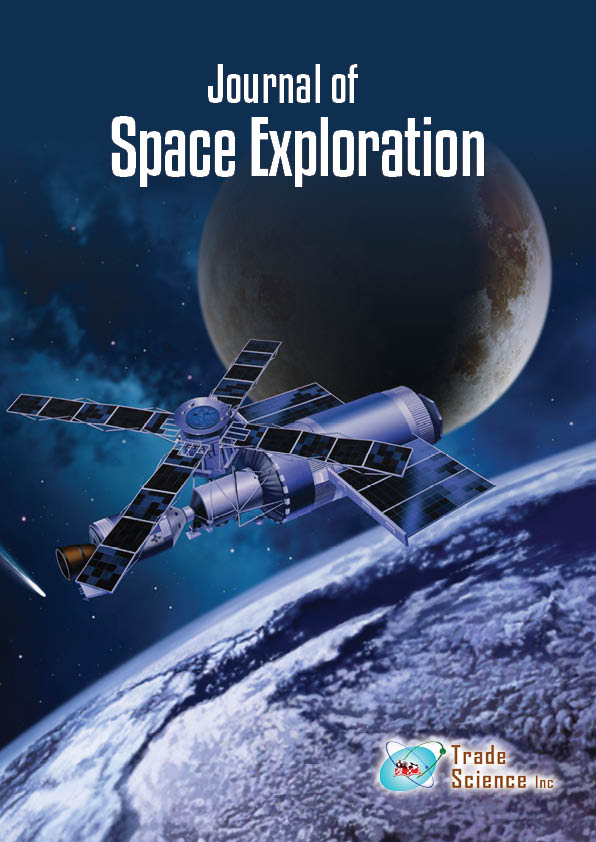Opinion Review
, Volume: 13( 1) DOI: 10.37532/2320-6756.2024.13(1).346Beyond Mars: Charting the Future of Solar System Exploration
Received date: 14-Dec-2023, Manuscript No. tsse-24-128633; Editor assigned: 16-Dec-2023, PreQC No. tsse-24-128633 (PQ); Reviewed: 25- Dec-2023, QC No tsse-24-128633 (Q); Revised: 08-Jan-2024, Manuscript No. tsse-24-128633 (R); Published: 14-Jan-2024, DOI. 10.37532/2320-6756.2024.13(1).346
Citation:Peter L. Beyond Mars: Charting the Future of Solar System Exploration, J Space Explor.2023; 13(1).346.
Abstract
As humanity's curiosity extends beyond the Red Planet, the future of solar system exploration holds promise for groundbreaking discoveries and unprecedented adventures. From the icy moons of Jupiter to the mysterious depths of the outer solar system, new missions and technologies are poised to unveil the secrets of our celestial neighbors. This article explores the next frontier of solar system exploration, including missions to explore the moons of gas giants, robotic exploration of asteroids, the search for life beyond Earth, and the challenges and opportunities that lie ahead.
Keywords
Red planet; Solar system
Introduction
The exploration of our solar system has captivated the human imagination for centuries, from the discovery of distant planets to the first steps on the Moon. As technology advances and our understanding of the cosmos deepens, the next frontier of solar system exploration beckons. Beyond Mars lies a vast expanse of uncharted territory, with icy moons, rocky asteroids, and gas giants waiting to be explored. In this article, we embark on a journey through the future of solar system exploration, exploring the destinations, missions, and discoveries that await us.
Exploring the moons of gas giants
Discuss the potential for life on the icy moons of Jupiter and Saturn, such as Europa, Enceladus, and Titan. Explore upcoming missions, such as NASA's Europa Clipper and ESA's JUICE (Jupiter Icy Moons Explorer), aimed at studying the geology, chemistry, and habitability of these intriguing worlds. Highlight the challenges of exploring the subsurface oceans of these moons and the technological innovations required for deep-space exploration missions.
Robotic exploration of asteroids
Examine the importance of asteroids as remnants of the early solar system and potential targets for future human exploration and resource extraction. Discuss recent and upcoming asteroid missions, including NASA's OSIRIS-REx and Japan's Hayabusa2, which aim to study the composition, structure, and origin of asteroids. Explore the potential for asteroid mining and the utilization of asteroid resources for future space missions and planetary defense efforts.
Searching for life beyond earth
Investigate the search for life beyond Earth, both within our solar system and on exoplanets orbiting distant stars. Discuss the astrobiological potential of Mars, with recent discoveries of methane and liquid water hinting at the possibility of past or present life. Explore the potential for life on ocean worlds such as Enceladus and Europa, where subsurface oceans may harbor microbial life forms.
Challenges and Opportunities
Address the technical, logistical, and financial challenges of future solar system exploration missions. Discuss the importance of international collaboration and cooperation in planning and executing ambitious space missions. Highlight the opportunities for scientific discovery, technological innovation, and human exploration that lie ahead in the exploration of our solar system.
Future Directions and Missions
Speculate on the future of solar system exploration and the missions that will shape our understanding of the cosmos. Discuss proposed missions to explore Uranus and Neptune, such as NASA's Trident and ESA's ODINUS, and their potential contributions to planetary science. Explore the possibilities of crewed missions to the Moon, Mars, and beyond, and the role of human exploration in advancing our knowledge and presence in space.
Conclusion
Reflect on the significance of solar system exploration in expanding our understanding of the universe and humanity's place within it. Emphasize the importance of continued investment in space exploration and scientific research to unlock the mysteries of our celestial neighbors and inspire future generations of explorers. Envision a future where humanity's reach extends beyond Mars, into the farthest reaches of our solar system, and beyond, as we continue to explore, discover, and push the boundaries of human knowledge and exploration.

